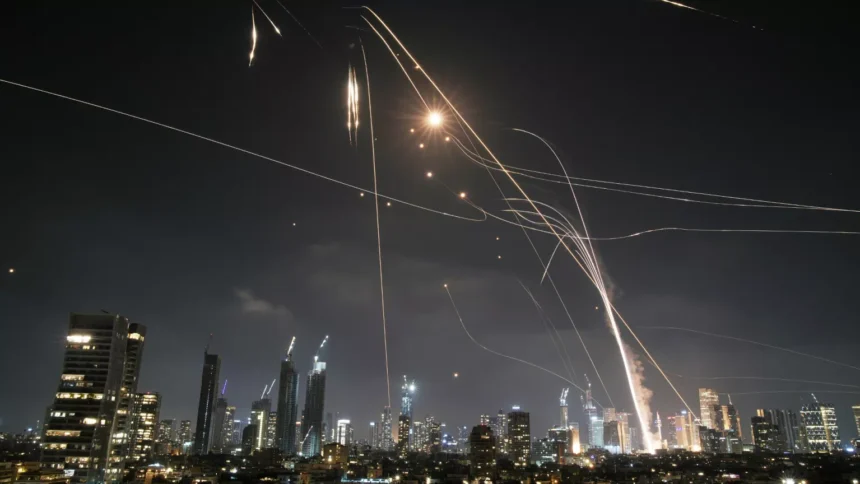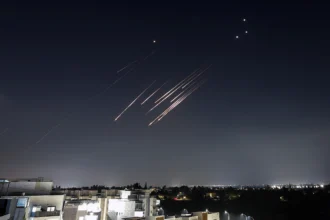In a dramatic escalation of regional tensions, Iran launched nearly 60 missiles toward Israel in direct retaliation for the recent Israeli strike on Iranian military facilities. The missile barrage, which occurred in the early hours of the morning, targeted multiple locations across Israel, including strategic military bases and infrastructure in the southern and central regions.
A Coordinated Strike
Iran’s Islamic Revolutionary Guard Corps (IRGC) claimed responsibility for the retaliatory attack, stating it was a “measured and legitimate response” to what they described as Israeli aggression. The launch reportedly involved a mix of short- and medium-range ballistic missiles, as well as drones.
Israeli defense systems, including the Iron Dome and David’s Sling, were activated in full force. According to Israeli military sources, the majority of the incoming missiles were intercepted, though some caused damage to infrastructure and led to minor injuries in the Negev region.
Growing Regional Instability
The Iranian attack marks the most significant direct military exchange between the two countries in recent years, fueling fears of a wider regional conflict. While both nations have previously clashed through proxies, such as Hezbollah and militias in Syria and Iraq, this direct engagement signals a dangerous shift in the scale and intensity of their confrontation.
Lebanon and Syria have reportedly heightened their military alert levels, and several Gulf nations have begun emergency diplomatic consultations in response to the escalating hostilities.
Global Reactions
The international community has reacted with deep concern. The United Nations Security Council has called an emergency session, while world leaders are urging both nations to show restraint. The U.S., traditionally Israel’s strongest ally, condemned the Iranian missile launches but also called for immediate de-escalation.
European Union officials have warned that continued escalation could lead to a broader conflict that threatens energy security and regional stability.
What Comes Next?
The coming hours and days will be critical. Israeli officials have vowed to respond “at a time and manner of our choosing,” raising the possibility of further retaliatory strikes. Meanwhile, Iran has warned of a “larger response” if Israel escalates the situation.
With tensions at their highest point in years, the risk of a broader war across the Middle East is growing. The world watches closely, hoping diplomacy can still prevent a full-scale conflict.






